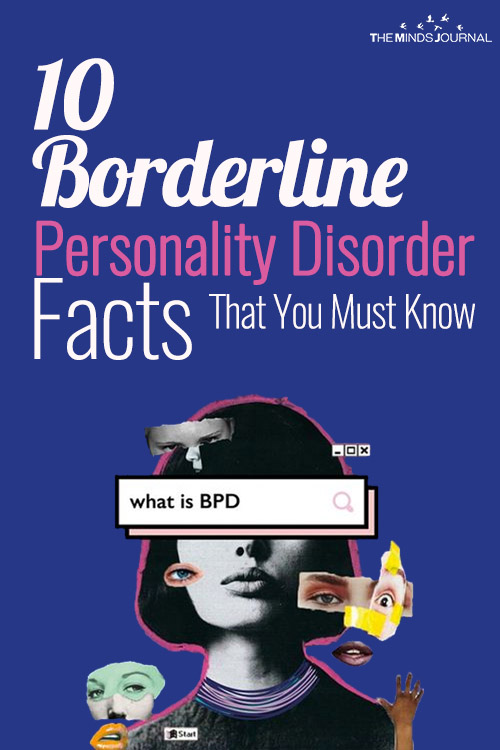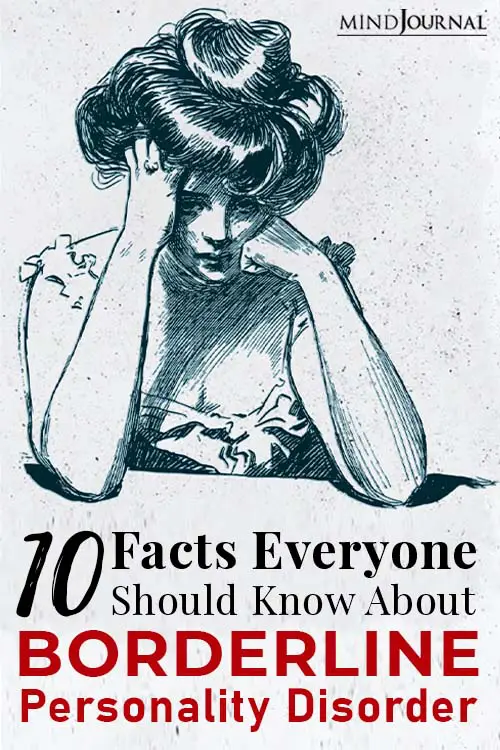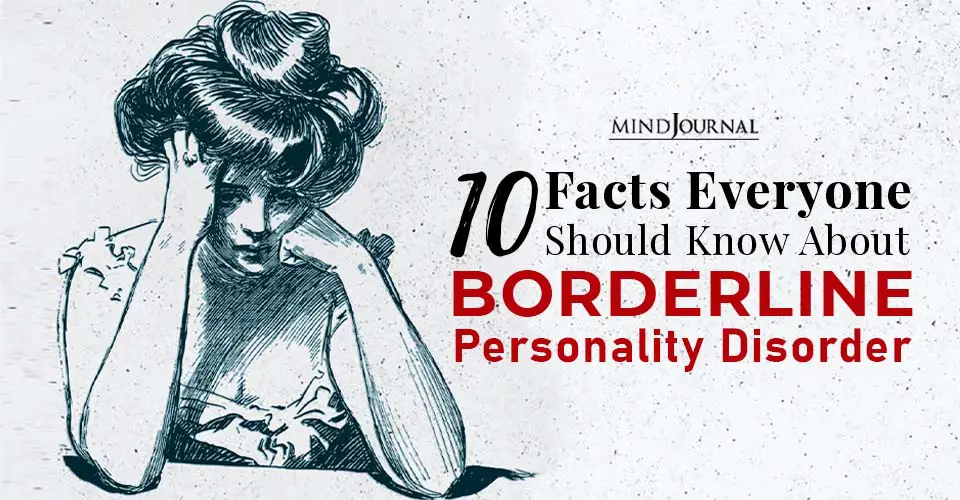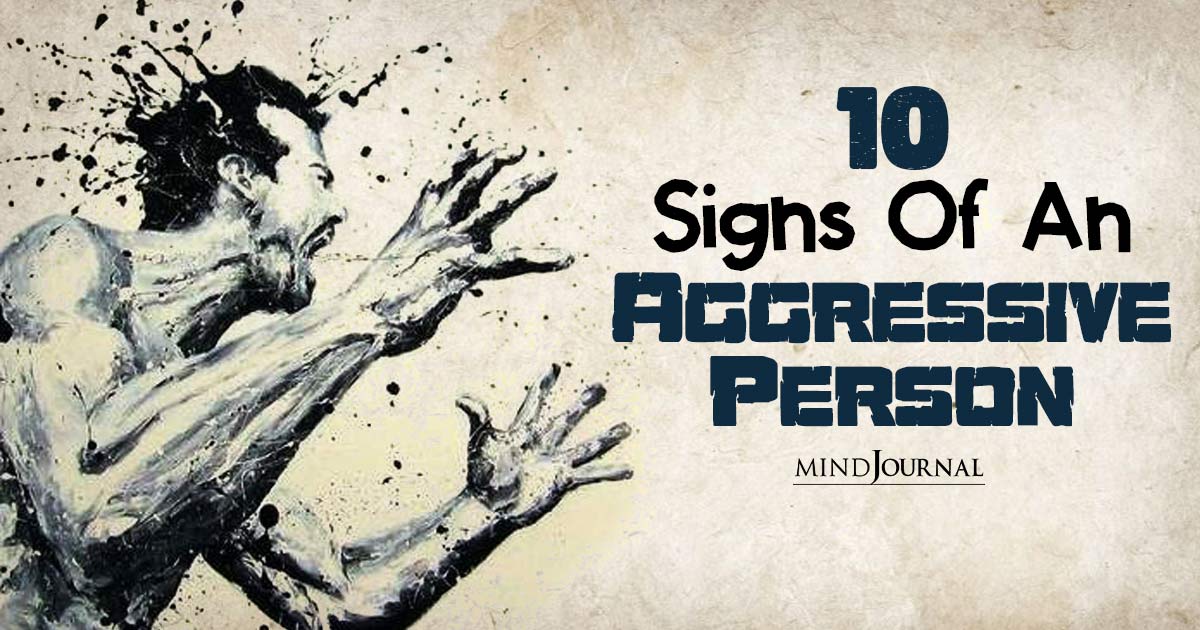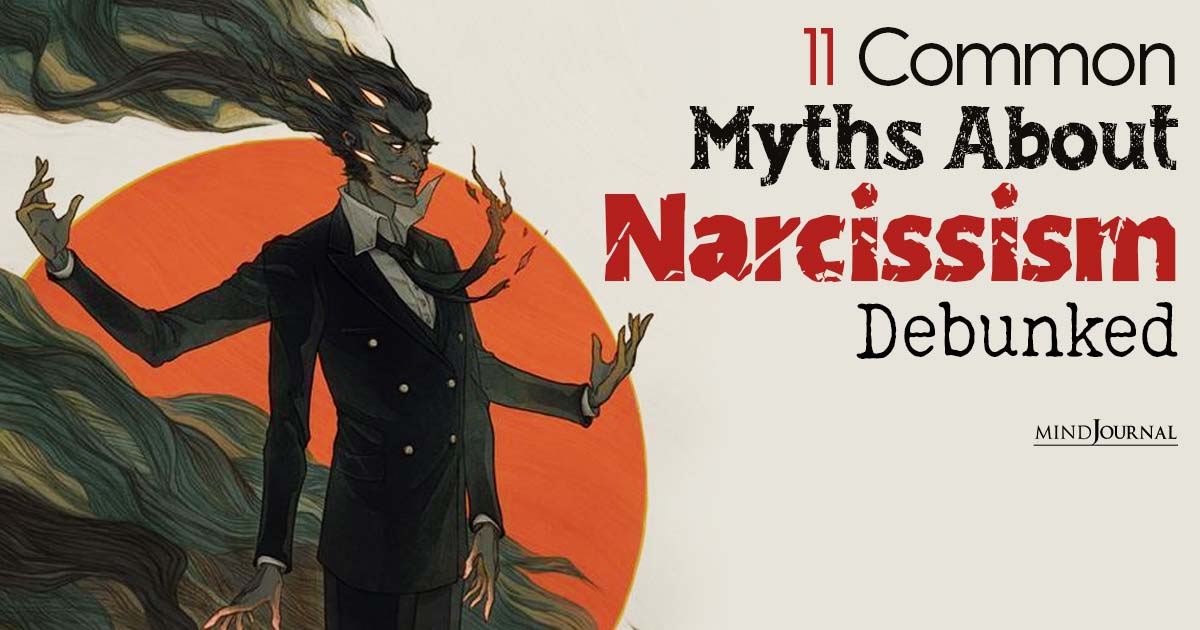Borderline personality disorder (BPD) is marked by acute emotional turmoil leading to unstable relationships, volatile sense of self, fear of abandonment, frequent mood shifts, self-destructive behavior and poor impulse control.
BPD is widely misunderstood and is usually confused with bipolar disorder. But the fact is, Borderline personality disorder is a completely different mental illness and we need to spread awareness to separate the myths from the borderline personality disorder facts.
What is borderline personality disorder?

Borderline Personality Disorder (BPD) is a psychiatric condition typically affects young adults and adolescents. People feel intense emotions for extended periods of time. This can result in extreme responses to stressors and feelings of abandonment. Difficulty with self-regulation along with self-harming tendencies and suicidal thoughts can also result in sufferers.
A person with BPD is extremely sensitive and may experience excessive anger, depression, stress and anxiety. Even the smallest triggers may cause intense reactions. Overwhelming emotions can make a painful experience appear inescapable. But it’s possible to recover from BPD.
Read What It Feels Like To Live With BPD
Facts about borderline personality disorder
We need to understand borderline personality disorder, help the people who suffer from it and focus on the most accurate borderline personality disorder facts. Here are 10 facts about BPD that you should know.
1. Around 1.4 % of people in the US are affected by BPD
According to the 2007 National Comorbidity Survey Replication, about 1.4% of 5,692 respondents examined met the criteria for borderline personality disorder. This statistic is way lower than any other personality disorder which was around 9% at the time.
Read What It Feels Like To Live With Border Line Personality Disorder
2. BPD causes excessive mood shifts & uncertainty
BPD affects how you feel and think about yourself and others. It makes it hard to regulate your emotions and impacts your daily life negatively. The changes in mood can be so extreme that it can make you feel overwhelmed with emotions. They also experience a strong fear of abandonment and think that the people they love will leave them.

3. Borderline personality disorder is not the same as bipolar disorder
Although both disorders share similar symptoms, but they are not the same thing. You may experience extreme mood shifts with bipolar disorder as well, but it is in a much lesser degree. Moreover, stormy personal relationships and fear of abandonment is not experienced by people with bipolar disorder.
Read Loving Someone With Borderline Personality Disorder
4. BPD can exist with other mental disorders
Did you know 84.5% of people with BPD also suffer from other mental health conditions? This finding was confirmed by The National Comorbidity Survey Replication. As a result of this, it can be extremely hard to identify BPD in patients. However, experts are still trying to understand the link between BPD and other mental health conditions.
5. Risk for self-harm and suicide is high in people with BPD
Due to lack of impulse control and intense emotions, self-harm and suicidal tendencies are prevalent among patients with BPD. According to the American Psychiatric Association, 10% of people suffering from BPD commit suicide, 70% attempt suicide, while 90% engage in self harm activities. Deep emotional suffering can lead to self-harm which may seem like a temporary yet instant relief.
Read Suicide Warning Signs: Suicidal Behavior That Are Easy To Miss

6. There may be many causes of BPD
Studies have found that there are several causes that can cause BPD in a person. It can result from a combination of neurological, environmental, genetic, and social factors. Although there isn’t any known gene that has been identified to be linked with the disorder, you will have higher probabilities to have BPD if any of your family members had it.
7. BPD can be treated fully
According to studies published in 2011 by psychiatrist Dr. John Gunderson, 85% of people with BPD experience complete symptomatic remission. Moreover, researcher Mary C. Zanarini published a book in 2018 which revealed that 60% of people with BPD had recovered by the age of 16. Although treatment and recovery may be difficult, it is definitely possible. This is undoubtedly one of the best borderline personality disorder facts.
8. Therapy is the best form of treatment for BPD
Therapy can help sufferers develop emotional regulation and offer them the skills to get better control over their emotional reactions. Dialectical behavioral therapy (DBT) will help you cope with your emotions through mindfulness and acceptance of your emotional state. Cognitive behavioral therapy (CBT) helps to recognize and regulate your behaviors and emotions and can be a great tool for treatment.
Read How To Cope When Someone You Love Has BPD
9. There are no specific medications for BPD
According to the National Institute of Mental Health (NIMH), medications may not provide any prominent benefits when used as a primary treatment for the disorder. However, medications may be prescribed by psychiatrists to manage specific symptoms. Moreover, if you have co-occurring mental conditions along with BPD, like PTSD or depression, you may be prescribed medications to treat the other disorders.
10. May is BPD Awareness Month
The month of May has been specially granted by the U.S. House of Representatives in 2008 as Borderline Personality Disorder Awareness Month. This enables activists and organizations to take prominent actions to promote awareness and bring about a change.
Take responsibility
These borderline personality disorder facts can help us understand what a person with BPD actually goes through. Studies by the NIMH reveal that individuals who do not receive proper treatment for BPD may suffer from other mental or medical illnesses. Hence, distancing them may make the condition worsen. If you or your partner, family member or friend has BPD, then you need to focus on helping them getting treatment immediately. Loving someone with BPD is never easy, but only you can help them make better life choices.
Through effective therapy, a person with BPD may be able to recover and accept themselves and their feelings through self-acceptance and self-awareness.
Frequently Asked Questions (FAQs)
Is borderline personality disorder more common in younger siblings?
The diagnosis of borderline personality disorder was less frequent in the oldest and youngest birth cohorts, according to studies.
What are the childhood precursors of borderline personality disorder?
Childhood temperamental characteristics such as relational aggressiveness, hyperactivity, poor emotional regulation, and negative affectivity are strong indicators of BPD’s early development in children.
Is parasuicidal behavior common in people with borderline personality disorder?
The suicide rate in BPD is 10%. People with BPD experience ongoing emotional distress, which is frequently excruciating. Thus, the inclination toward parasuicide is frequently seen.
